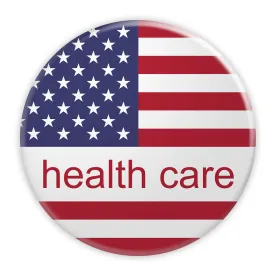The fifth Open Enrollment period under the Affordable Care Act (ACA) started on November 1st, and will continue for a scant 45 days ending on December 15, 2017. This year, not only has the Open Enrollment been cut in half, but obstacles abound – obstacles that were not part of the 2016 Open Enrollment Period. For example:
-
Healthcare.gov is undergoing maintenance that could interfere with access during the Open Enrollment Period;
-
Federal support for Open Enrollment outreach and advertising is substantially lower this year than it has been in prior Open Enrollment periods; and
-
The number of health insurers participating in the exchanges has dropped significantly from last year (prompted in part by well-founded concerns regarding the future of federal cost-sharing reduction (CSR) payments), and in some counties, only one plan is available to individuals and families seeking coverage through the exchanges.
Plan Departure: A Continuing Trend from Prior Years
In 2016, a significant number of large, national insurance companies announced that they were withdrawing from the exchanges and would no longer offer health insurance coverage during 2017. As for 2018, the following chart identifies, as of October 12, 2017, both (1) those national insurance companies that will fully withdraw from one or more exchanges effective January 1, 2018, and (2) those national insurance companies that will continue to offer plans on the state exchanges in 2018 as they did in 2017.
|
Insurance Company: |
Insurance Exchange Exits for 2018: |
Insurance Exchange Participation in 2018: |
|
Aetna |
Delaware, Iowa, Nebraska, Virginia |
None |
|
Anthem |
Indiana, Maine, Missouri Nevada, Ohio, Wisconsin |
California, Colorado, Connecticut, Georgia, Kentucky, Missouri, New Hampshire, New York, Virginia |
|
Centene |
None |
Arizona, Arkansas, California, Florida, Georgia, Indiana, Kansas, Mississippi, Missouri, Nevada, New Hampshire, Ohio, Texas, Washington |
|
Cigna |
Maryland |
Colorado, Illinois, Missouri, North Carolina, Tennessee, Virginia |
|
Molina |
Wisconsin, Utah |
California, Florida, Michigan, New Mexico, Ohio, Texas, Washington |
|
Humana |
Florida, Georgia, Illinois, Louisiana, Kentucky, Michigan, Missouri, Mississippi, Ohio, Tennessee, Texas |
None |
|
UnitedHealthcare |
Virginia |
Nevada, New York |
Who Ordered the Retreat?
There are a variety of reasons that large national insurers are retreating from the federal and state exchanges, but as a general rule, they stem from uncertainty regarding the profitability of state exchange participation.
CSR Funding Uncertainty
President Trump’s inauguration spurred speculation that the ACA’s CSR subsidy payments could be discontinued, and insurance companies priced exchange plans accordingly. The Congressional Budget Office estimated that the cessation of CSR payments for the 2018 calendar year – which has since come to pass – would result in a 25% increase in premiums by 2020 and at least a temporary increase in the number of areas with zero individual exchange offerings (as a result of further insurer exits and stifled entry / expansion).
The Individual Mandate
One year-over-year driver of the insurance company exodus from the exchanges is the weakness of the individual mandate.
The individual mandate is critical to whether the health insurance companies can turn a profit on the exchange plans. In an ideal world, the individual mandate would successfully induce all eligible citizens to obtain health coverage. Under such circumstances, health insurers would have a much easier time estimating enrollment, risk pools and, ultimately, profits from participation on the insurance exchanges. In practice, however, many of the “young invincibles” whose participation in the health insurance market could offset the costs of insuring older and sicker populations elect to incur the relatively modest tax penalty resulting from a failure to obtain coverage.
Even if the penalty were tougher (and as a consequence, presumably more effective), enforcement is rather lax, and the Trump administration has signaled in 2017 it may instruct the Internal Revenue Service to deprioritize enforcement of the individual mandate.
Enrollee Fraud and Gaming the System
The large national insurance companies have also complained about enrollee fraud that increases the actuarial unpredictability of the performance of a particular risk pool. For example, insurers have complained that enrollees in an exchange plan may have an expensive procedure early in the year, and then stop paying premiums after the insurance plan has paid for the procedure.
The Importance of the Big Players in the ACA Exchanges
Because they have greater resources to understand, and hedge, the actuarial risks of the exchange plans – including balancing the prospects of fraud, unhealthy patient mix and less then desirable compliance with the individual mandate – large national health insurers are better positioned than their smaller counterparts to succeed in the ACA exchanges.
As such national insurers have migrated away from exchange participation, they have in many instances been replaced by regional players, such as health plans associated with regional hospital systems, physician groups and faith-based organizations. Such entities generally do not have the same financial wherewithal as the large national insurance companies to successfully diversify risk or endure greater potential losses with respect to the exchange risk pools. As a result, many healthcare analysts and commentators have concluded that regional plans are ill-equipped to fully replace the large national insurance plans if the large national insurance plans continue to leave the state exchanges.
Notwithstanding the foregoing concerns regarding regional plan participation on the exchanges, Centene Corporation, a publicly-traded healthcare company that is the parent corporation of multiple state-based plans that participate in the state exchanges, has elected to expand its participation in 2018. Whether Centene Corporation succeeds with its expansion into more state ACA exchanges, and whether it chooses to further expand in future years, will be an important indicator of the health of the ACA health insurance exchanges in years to come.
“Repair and Encourage”
The remedy for stabilizing the exchanges is not overly complicated, and realizable, if the political will existed to accomplish what needs to be done.
A strong first step would be changing the conversation in Washington D.C. about the ACA –get rid of the “repeal and replace” mantra and instead make the conversation about “repair and encourage.” The point is that the manner in which the political class is addressing healthcare and the ACA is toxic, and the result is driving the insurance companies away from participation. A change in tone from our elected leaders would probably do remarkable good in stabilizing the state insurance exchanges over time.
In addition to calming the political dialogue regarding the ACA, for 2018 (ahead of the 2019 open enrollment period), we propose some specific policies that we think would help encourage participation by the large, national insurance companies in the exchanges in 2019 and beyond:
-
The judicial branch needs to resolve, ideally favorably, whether CSRs will continue.
-
The individual mandate needs to be strengthened by increasing the applicable tax penalty and more vigorously pursuing enforcement.
-
Congress should consider incentives, whether tax-based or otherwise, to specifically encourage the large, national insurance companies to increase participation on the exchanges.
In the current political climate, such dedicated action seems unlikely, but the political winds may yet shift and blow the health insurers safely home to the exchanges.





 />i
/>i

